#it's not a lot but it's weird it happened twice... looks at tony and coffin
Text

DHMIS week day 6: Dreams/Electricity !!!
Man if they were a team they’d be Solar Energy. Looks at SG&G-
@transgenderduckguy
#dhmis#dont hug me im scared#dhmis week#dhmis fanart#dhmis lamp#dhmis electracey#because i mentioned it i have to tag it im sorry#dhmis shapeshifters guns and guilt#if i had a nickel for everytime i made a ''superpowered'' duo against a purple background and a glow effect somewhere i'd have two nickels#it's not a lot but it's weird it happened twice... looks at tony and coffin#after this week is done i'll be showing individuals for these !! cause DAMN are they PRETTY and so many details are lost in the big groups#..wait that's exactly what i promised with the sg&g promo pics. uhhhhhhh#UUHHH. ANYWAYS UHHMMM ELECTRACEY LOOKS ADORABLEE AUGH
13 notes
·
View notes
Photo
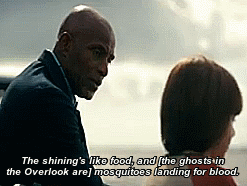
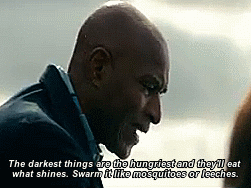

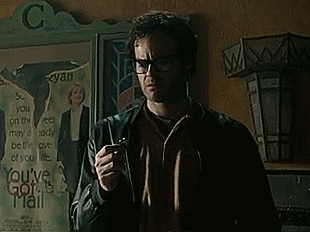
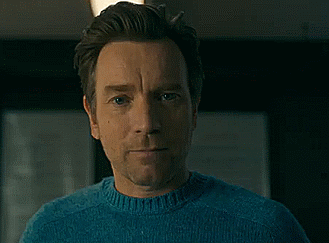
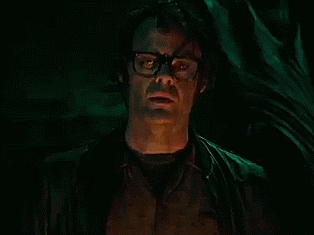
My Obnoxiously Long Analysis of Danny Torrance and Richie Tozier
I have thought about this particular analysis for a while, and this has been a really fun thing to write, but at the same time, I feel like I am missing a large part of the story because I am struggling to figure out why? I know these characters are connected in some way, that part is obvious, but I am unsure of the significance. Why are these two characters so similar yet so different? This isn’t a case of the Stephen King self-insert where every male lead is an author but grew up in a weird place and lost a family member that causes him great distress even in his adult life (looking at you, Bill Denbrough and Gordie LaChance). The case of these two characters is different, as their personalities and lives are so different as to not have them be carbon-copies of each other, but at the same time they share so many traits and they have this connection that is interesting to me (though not as interesting anymore, thank you so much, Mike Flanagan).
First, I will talk about the gifs, since I think that’s probably the best place to begin. That quote by Dick Hallorann is so, so interesting to me because it directly relates back to It. Towards the end of the book, Richie recalls a very distinct moment when Bill killed a mosquito that was on the back of Richie’s neck, and he talks a bit about it and how bugs were often drawn to them (though he uses pheromones as an example). Leeches are also mentioned quite descriptively in It as well, them being Patrick Hockstetter’s fear and what kills him in the book. The other gifs are mainly a visual comparison, as I think that the way those two moments were carried out was pretty interesting. I was going to make another visual comparison with the weird cloudy eye effect that both films utilize very well, but that part in It: Chapter Two with Richie does make me pretty uncomfortable. In both movies, essentially, characters’ eyes get clouded over when they get into someone else’s head: Danny Torrance does this to Rose the Hat, while It does it to Richie.
To start off, both Richie and Danny grew up as only children in a family where they had close relationships with their parents despite them having a hard time understanding their children. They both felt closer to their mothers, as their fathers were often busy with work; both Maggie and Wendy seemed to ensure that Richie and Danny grew up with strong moral values, and both of the children were affected greatly when their mothers died. As children, they are forced into an environment where they deal with a supernatural evil, though they are not in any real danger unlike other characters until the end of the story (when Jack chases Danny and when Richie and the other Losers fight It for the first time); all other times, they mainly see things that make them aware of the danger that is present. Notice that with Richie, unlike the other Losers, is not physically affected by It really at any point. This is very different from how It works with the others because that danger is still there even after the event has passed. The blood in Beverly’s bathroom is still there even after she leaves and goes back. But with Richie, in the park, he is able to make the danger go away, he puts those glasses back on and everything goes back to normal (the others physically run away from the danger, but Richie is psychologically running away from it by telling himself it isn’t real). Anyway, this event stays with them long after they’ve grown up and moved far away from the place where the trauma occurred: Richie moved from Maine to California (Chicago in the film) while Danny moved from Colorado to Florida (later to New Hampshire). They then, turn to drugs and/or alcohol, which is said in Doctor Sleep to sort of repress the ability to shine and keep those negative past memories at bay; Richie seems to lean more towards drugs than alcohol, and vice versa for Danny. When they are 40, they are drawn back to the place where they were mainly abused as children and are able to use their abilities to destroy the evil thing finally before returning back home to their pets and their co-workers that they have weirdly close relationships with and all is good. That's essentially their main stories, but I'm also going to talk about a few specific connections that I think are cool to see.
Both Danny and Richie use their hands as the main source of their shining abilities. This is not obvious with Richie in the movie, but it is for Danny with him and Tony. However! In the book, Richie's main goal in life as a child is to become- of all things- a ventriloquist. You know, a person that uses their hands a lot like how Danny does to make it look like Tony is more than just a voice. Speaking of voices, that's Richie's main thing. Who is to say all those voices aren't like Tony in that they're a personification of the shining? (more on this below) This is also a connection between the two because neither of them is particularly good at doing voices, they essentially still just sound like themselves; this doesn't mean that those voices don't represent other people, though, even if they do come out of Danny's and Richie's mouths. The whole hands thing also works for the other members of the Losers Club, with each of the Losers relying on their hands for their jobs, just like Danny, who, in Doctor Sleep, is mentioned as being a janitor before becoming an orderly at a hospice (I would classify him more as an unregistered nurse, as he does say he’s had medical training). Hands and arms in general play huge roles in these two stories, which I think sort of puts the nail in the coffin of this argument. As a child, Danny Torrance gets his arm broken by his father, which is the moment when he starts talking to his imaginary friend/personification of the shining, Tony. While nothing huge happens to Richie’s arms in the book or movie, I would go as far to say (I am aware this goes off-topic, but bear with me here) that in the hierarchy of who shines the brightest of the Losers, Eddie is up there since not only does he get his arm broken twice in the book, it’s also what causes him to die because he gets his good arm bitten off and he bleeds to death. Eddie in his final moments is so strange to me, and I think the reason why that is is that he physically cannot shine. His only arm left is broken. Of course, It would want to take that away from him because it’s aware that Eddie has the ability to kill it.
Both Danny and Richie rely on the guidance of an old (dead) friend to keep them on the correct path. For Danny, this is Dick Hallorann, as he appears in Doctor Sleep to guide Danny to return back to the hotel. For Richie, this is Stanley, as a memory of Stan keeps Richie from going back home.
Both Danny and Richie are able to form a connection with the dead/dying. For Richie, he's mostly connected to those who have already died, while Danny seems to help more with people who are dying. I mostly noticed this in It after realizing the voices of people (rather than original characters) Richie seems to do more often- Humphrey Bogart, James Dean, and Pancho Vanilla (based on Pancho Villa, the Mexican general)- are all people who have died before 1958. I like to imagine that this is just Richie flexing with his shining ability and him being able to form those connections with those people by taking their voices and making them his own. Notice that in the book, “voices” is usually capitalized, as if it represents something a lot more important than just a kid doing an impression.
Both Danny and Richie have confusing relationships with others, specifically their bosses. This is more a personal thing rather than a fact, but I have realized that these characters do have rather strange relationships with others. With Danny, he meets Billy after taking a bus to New Hampshire, and Billy gives him a job and a place to stay. They become fast friends, though I mainly attribute this to their shared ability to shine (yes, of course, I’m going to mention that Danny often sings along to YMCA while working). Danny eventually tells Billy about what’s going on with the missing kids, and Billy is just unusually calm with the situation and agrees to go with him to Idaho to find Bradley’s glove. With Richie, however, I would say the strange coworker comes in the form of Steve, who is his manager in both the book and the movie. Obviously, if you have never been to my blog before, I really like Steve. He’s a fun character to look at not only because of the way he interacts with Richie but because I am willing to bet that that’s who Richie ends up with (at least, in the movie, since that was the plan in the 2010 script). Like Danny with Billy, Richie wants to tell Steve about the crazy stuff that’s happening, if he remembered what happened at all. I know this isn’t really a good explanation for the comparison between Danny and Richie, but I feel like their relationships with Billy and Steve are just really interesting and something that stuck out to me in the books and the movies.
Of course, now, I feel like I need to justify all of this. I need to come up with some reason why these two characters are connected and why I felt the need to write all of this garbage. And for the longest time, I didn’t know why. I didn’t know why these two characters stick out so much in this universe.
And then I rewatched It: Chapter Two.
Richie sticks out the most in that movie because of the way he acts is so different from the others. He feels distant, almost. From the minute I see him on screen I am able to look at him and say “that’s Richie”, but at the same time he feels so different to me, as someone who has looked at this character for a long time to try and dissect him. In his opening scene, for one, unlike all of the others, Richie gets a moment on stage where he stares out blankly and he hears these voices, memories from his past (I don’t remember the exact things they said, but essentially they were the voices of himself, Stanley, Eddie, and Henry). That sticks out to me so much because he is the only character that that happens to, even after he drank a glass of bourbon like a minute beforehand (of course, this also can sort of be explained as the shining is dulled by alcohol, not always taken away completely). To be honest, all of the Losers tend to turn to alcohol when faced with stressful memories throughout the movie. But it wasn’t until later that I realized that Richie was seen differently by the Losers. In the Neibolt House, I feel like the Losers tend to somewhat overreact when it comes to Richie after being attacked by the spider-Stanley (like… when Eddie broke his arm, most of them were focused more on Pennywise rather than helping Eddie). And later after Eddie got stabbed, he looks to Richie as if Richie is going to help him.
This goes back to my hierarchy statement before, but essentially, what I’m getting at is that Richie shines the most. Like… Danny Torrance levels of shine. That’s why they are connected. It’s shown in Doctor Sleep that those who shine the most tend to connect to each other, so who’s to say that Danny didn’t know about Richie? In my hierarchy, by the way, I would say that the order of who shines the most would be: Richie, Stanley, Eddie, Beverly, Bill, Mike, and then Ben. Of course, this would bring up the issue of “if Richie shined the most, then why didn’t the Turtle talk to him instead of Bill?”, and that can just simply be put down to the fact that Bill is the leader. That came to be not because of his shining, but rather simply because of the way he looked; the other Losers (I believe it was either Eddie or Richie) mention that they look up to Bill, mainly because he is taller and stronger and more handsome. Why would the Turtle go to Richie for help with this when Richie has been running away from himself his whole life? Bill was the logical reason because he could lead them in a way that Richie never did.
Overall, I feel like both Richie and Danny have these super similar qualities that are hard to ignore. I love both of these characters, so writing this long piece of garbage was a lot of fun. It was also fun to rewatch these movies and see that there is just this big connection that is there for fans of the books, so I am dying to see where it goes. It feels like they are waiting for The Dark Tower to bring them together with the mentions of the Turtle and Ka and space and all of that, but I feel like a whole new story would be really interesting as well. Plus, you know, I am dying to see a teenaged Abra trying to explain to shining to Richie.
#this took forever to write#richie tozier#danny torrance#it chapter two#doctor sleep#the shining#it chapter one#i so wanted these two in a movie together mike flanagan#why you gotta do this to me#smh#stephen king#the losers club#my analysis#abra stone#eddie kaspbrak#bill denbrough#beverly marsh#ben hanscom#mike hanlon#stanley uris
85 notes
·
View notes
Text
Phoebe Bridgers Interview
Phoebe Bridgers
Photo by Frank Ockenfels
Don't let the sombre tone of her music fool you: Los Angeles-based singer-songwriter Phoebe Bridgers has a sunny nature. Bridgers grew up in the rose-coloured city of Pasadena, attending the prestigious Los Angeles County High School for the Arts to study music. From an early age, she found encouragement from a close-knit artistic community of friends and family to follow her dreams. Throughout her debut release, ‘Stranger in the Alps’, there is a delicate balance to her work, a dance between disguised narratives and earnest emotions, between whispers and shouts. Phoebe’s stories unfold through specific, evocative imagery sung in her subtle confessional style. With a desire to form an album to completely represent who she is, these songs are excpetional reminders of what she set out to do… We talk to Phoebe Bridgers about serial killers, humour as a coping mechanism and an encounter with a whole foods employee…
TSH: There are a variety of topics covered with your debut release, including obsession and heartbreak, as well as looking into one’s own mortality...
Phoebe: Yeah, I guess mortality is just one of those topics that people get obsessed with before they die and often throughout life. It’s certainly something that plays on my mind. Also, pulling from heartbreak and death is always something that allows me to say a lot. Since this was my first record, I kind of wanted to cover subject matter that I haven’t really written about before, which is why I touched on mortality. I feel like I tend to write whatever I’m feeling - I don’t really push my music into a certain direction.
TSH: The record also details your journey from high school all the way up until the recent election...
Phoebe: Yeah, absolutely. I feel song by song this record is certainly like a snapshot in time for me. It’s nice for me to look at this record and know that it takes me back to different times in my life. For example, a song like ‘Smoke Signals’ feels so specific to me even now, simply because it’s just over a year old.
TSH: Does learning from others during the shaping of a record aid you in particular?
Phoebe: Absolutely. For me, I especially like working with producers who can give me new knowledge. I’d previously worked with Ryan Adams, but I didn’t want to make a similar body of work as before so having Tony Borg to assist me with his vast knowledge of guitars and synthesisers was so cool. I like to learn from others and Tony helped me to make some really interesting choices, alongside his killer production. Part of the reason why the album has so much variety is down to Tony.
TSH: The response from listeners for your songwriting must be encouraging too…
Phoebe: Yeah, it’s been so cool. I actually appreciate others connecting with my music more than me as an artist taking something away from my own music. It’s funny because the lyrics for ‘Smoke Signals’ are on this one website and people are praising me for this song, giving me credit and I’ve never thought about the song in such a way. I actually had that song compared to classic poems and Shakespeare, haha! It’s kind of crazy!
TSH: Tell us more about the song ‘Scott Street’ being about drinking beer outside…
Phoebe: Haha! Yeah, that track takes me back to a time and place, for sure. Besides I really don’t like warm beer. That one, like many other songs is about a time in my life where there was not a lot going on in my day to day routine. It was a time when I was slightly wayward and just thinking about life a lot.
TSH: What ideas did you have in mind with your version of ‘You Missed My Heart’?
Phoebe: I definitely wanted it to be stripped back. It’s a Mark Kozelek song, which he released under Sun Kil Moon. There’s a live recording of it somewhere, and when I saw him play it live the guitar arrangement just blew me away. It’s so complex and the fingerpicking is amazing. However, the record version is a bouncy synth song! Anyhow, I wanted to basically transpose the guitar part that I heard live to piano. That song was one of the quickest recordings I’ve done and I’m so happy with it.
TSH: You just mentioned Mark Kozelek, who often writes about serial killers and you’ve also gone down the serial killer rabbit hole in recent times...
Phoebe: Ha! Yes, I did. Some of my favourite artists have serial killer songs: Elliott Smith has one and so does Sufjan Stevens, and Mark Kozelek has a few too. It was really interesting finding out more about the minds of serial killers. After a while, you start to feel really disturbed and conflicted. It kind of really consumes you in an odd way.
TSH: Which of the serial killers did you find to be most harrowing and disturbing?
Phoebe: I found Jeffrey Dahmer to be the most disturbing - his story really shook me. As for Gacy and Bundy, I think they were just idiots. But yeah, Dahmer really creeped me out because he was just as curious as everyone else about what happened to his brain and what made him the way that he is. There are a couple of interviews where he’s getting super analytical, which is quite chilling, and he’s also one of the only ones to actually apologise for his actions whilst trying to figure himself out. It was weird for me to see him have even a tiny bit of grasp on what he did, yet still have done it.
TSH: Which attributes of touring do you mostly admire?
Phoebe: I think getting to meet more and more people who play music is among the most rewarding aspects of being on this journey. I meet a lot other musicians on tour, which is cool. It’s like having a little community of artists that respects each other - I really like that.
TSH: Is the worst part of touring having to leave your pug behind?
Phoebe: Oh, that is the most depressing element, having to leave my dog behind. It makes me super sad.
TSH: Is humour still a preferred coping mechanism for yourself?
Phoebe: I really do lean on humour to help me at times. I often get made fun of a lot for being nervous. When I’m under pressure, I end up sounding like a surf girl form Santa Monica. I end up sounding funnier and not like me - I get really reserved. Even though I’m the opposite with my really close friends. When I’m with my close friends I end up getting lazy, quiet and deep in my own head. Humour is mostly beneficial when I meet someone for the first or second time. I tend to just joke and make the other person realise that I’m not the type of person that’s brooding every day with black coffee and writing sad songs.
TSH: Did you manage to find a worthy podcast, since you were searching?
Phoebe: Oh yes! The one that blew my mind and I listened to twice was S-Town. That podcast is so artful and thoughtful. I just never thought anyone could do anything like that. It’s definitely my number one recommendation.
TSH: You recently got recognised by 'a cute whole foods employee' with whom you had a wholesome interaction with and then he caught you eating from the hot food bar with your hands…
Phoebe: That is a true story, ha! It happened in Salt Lake City where this guy recognised me at the front of store. I was getting stuff from the hot food bar, and as I always do, I started filling my plate, which is when this guy asked me on a date. Anyhow, he’s asks me if I’d like to get drinks together, but when I answered I had a load of food in my mouth! I had to apologise for answering with a mouthful, haha! I told him I was so sorry for eating from the bar, ha! Besides, I was flying out at 6am the next day so I couldn’t go out with him unfortunately.
TSH: How do you stay motivated in your free time?
Phoebe: I think ritual is really important to me. I don’t like to let myself stay in bed all day or be drunk all the time, it’s not good for my routine, especially when I’m touring. It’s important to go for a walk on tour and move your body, instead of just sleeping in a coffin all the time. I’m also trying to do the same when I’m at home: wake up early and exercise.
TSH: You’ve previously mentioned ‘it feels like I haven't told the universe what I am yet’, does this type of perspective still drive your music?
Phoebe: It does. I’m already writing songs that I know are going to be on my next record and I constantly have it in my mind as to what the next step will be. Maybe I’ll go down a more electro route or even have more folkier aspects. I’ve been wondering a lot. I feel like I have a lot more to say and a lot more exploring to do relating to who I am. I’m just excited to progress, besides I get to do things my way, which is so cool.
Phoebe Bridgers - “Motion Sickness”
Stranger in the Alps
0 notes